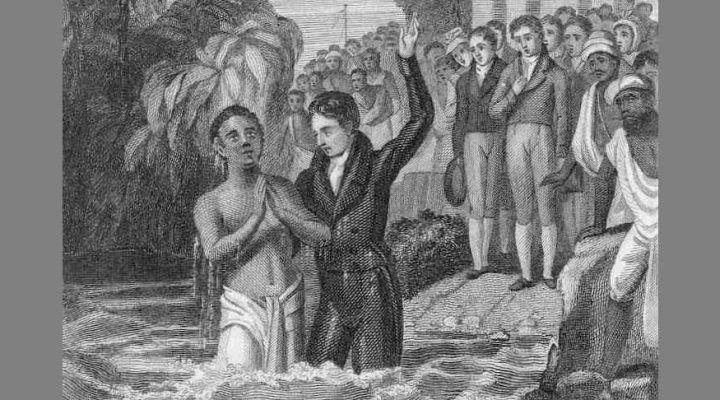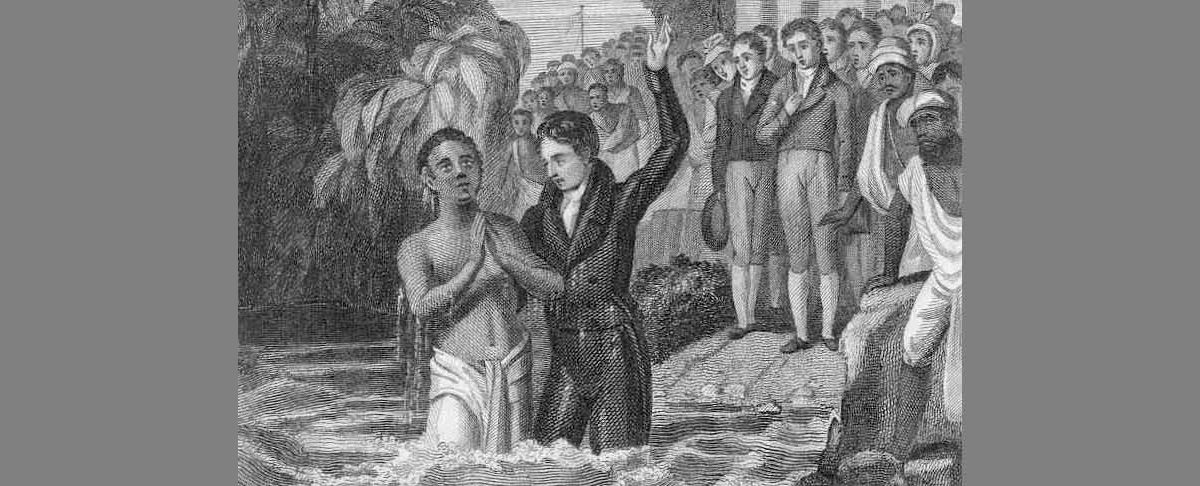The Christianity introduced to Northeast India by Baptist missionaries in the 19th century inspired advances in education, communication and ethnic cohesion but also left descendants coping with fundamentalism and patriarchy that persist today, experts on faith in the region said during a recent webinar.
G. Kanato Chophy, author of Christianity and Politics in Tribal India: Baptist Missionaries and Naga Nationalism, was the featured speaker during a Baptist History and Heritage Society “Making Baptist History Public History” podcast. The episode was the final in its current series.

G. Kanato Chophy
His remarks were followed by a response from Naro Pongen, associate minister for children and families at Old Cambridge Baptist Church in Massachusetts. Pongen is a native of Nagaland, a remote highlands region in India that borders Burma and features heavily in Chophy’s 2022 book.
Baptist churches in the area today must do a better job of living up to the compassion demanded in the Scripture originally shared by Baptist missionaries, Pongen said. “We as Nagas are yet to fully embody those teachings of Jesus. I feel we are yet to explore deeper into the theology of love and justice and of loving our neighbor.”
Chophy traced the arrival of American Baptist missionaries in Northeast India in the early 1800s and also their early struggles in the low-lying areas where they began their mission work.
“People living in the plains were not that receptive to the American Baptist mission gospel,” he said. “So, we see that slowly the Baptist missionaries had shifted from Assam and the Irrawaddy Delta up to the Uplands.”
The move placed the missionaries adjacent to those working in regions of Burma dominated by the Chin and Kachin, ethnic groups known today as predominantly Baptist, Chophy said. “This Baptist movement spread among the ethnic Nagas toward the end of the 19th century, which within some decades became the most successful mission field in the whole of Asia.”
“The one thing that all these ethnic communities share in common in this region is that … all of them follow the American Baptist brand of faith.”
Chophy said he termed the combined uplands region of Burma and Northeast India as “the Baptist Highland” because “the one thing that all these ethnic communities share in common in this region is that … all of them follow the American Baptist brand of faith.”
As the century progressed, missionaries provided access to Western medicine, printing presses, telegraph technology, historical preservation and literacy in part through translating the Bible into local dialects.
“The Baptist missions influence on the region’s language and culture has resembled that of tectonic plates,” he said. “The transition of oral societies to writing tradition had long-lasting effects. And in this, the American missionaries have played a pivotal role.”

Naro Pongen
Pongen said the book and webinar presentation deepened her understanding of the culture and the Baptist faith she experienced in Nagaland before moving to the United States in 2015.
“We Baptist Nagas are in constant negotiation between those two contrasting worlds, and most often, we don’t even realize that. We inhabit those realities because it has become our way of life.” she said. “And I believe it would be a disservice on my part as a Baptist minister not to acknowledge the legacy of Baptist missionaries in shaping my worldview.”
Yet some of the challenges missionaries faced continue to exist, including the prevalence of as many local dialects as there are communities, Pongen added. “I know people who are seminary trained but couldn’t serve their ethnic churches because they cannot speak the language of the church. … In that context, I wonder, how do we even begin to remedy such as situation?”
Christian fundamentalism and patriarchy are additional challenges facing Baptists in Nagaland in its struggle for a cohesive national identity within India, she explained. “All our nationalist leaders were devout Baptists. … There is this fundamentalist strain of Christianity that overshadows the agenda of the nationalist leaders.”
 The region also is “a patriarchal society” and as a result few women are ordained within its churches, she said. Of the 797 ordained ministers in about 1,700 congregations that make up the Nagaland Baptist Church Council, only seven are women.
The region also is “a patriarchal society” and as a result few women are ordained within its churches, she said. Of the 797 ordained ministers in about 1,700 congregations that make up the Nagaland Baptist Church Council, only seven are women.
“The last one who was ordained was in 2011. She was ordained after serving the church for 28 years as minister for women.”
Pongen said her critique emanates from a love of her culture and its history, and of her Baptist faith and calling. She urged others to examine Chophy’s book to help gain clarity on these issues.
“This book should be a required reading in seminaries run by Baptist churches and mission centers,” she said. “This also should be a required reading for pastors serving churches across (the region) and beyond.”
Related articles:
MLK’s civil rights work was an outgrowth of his Baptist tradition, author explains
Knowing a church’s history on slavery can be a nudge toward redemption, historians say
Author explains the history of ‘Peace Be Still’ and its social influence
Scholar traces how Black churches became centers of political engagement


